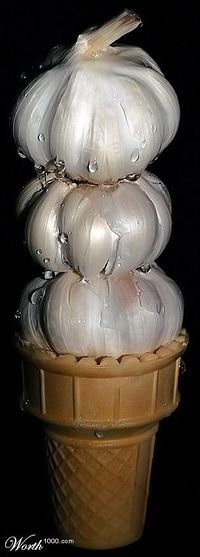French language
“We Surrender”
The French language, also known as français or la langue française, is essentially a gayer version of Latin. Despite sounding like a throat disease, it is considered to be the language of romance and love. It’s a very nasal language. In fact, french speakers praise those who speak with their nose.
What is known to be the "French language" is actually spoken virtually nowhere on earth. As can be seen in many films the French actually just speak bad English without ever admitting it. The "French" sounding noises are just put on to annoy the tourists, and to trick chicks who don't know any better into bed. Only the Québécois actually speak French, and they do it just to annoy the rest of Canada.
This highly complex nuptial custom is deep-rooted in French culture, going back to the Gauls (from French "avoir la gaule": to suffer from erectile hyperactivity), who would fight for days over in the hope of appeasing their insatiable appetite. Those fights were recounted by Julius Caesar in his famous best-seller "The Gallic Wars" (a corruption from Latin where the plosive p becomes a g in French for some reason in meaning it was really called: "The Phallic Wars"), something French people barely seem to care about.
L'Întrôdùctîôń[edit | edit source]
La « langue » française est une langue très étrange, pratiquée par une obscure tribu appelée les Français, ils vivent reclus dans un pays en forme d'étoile écrasée et déformée par un 40 tonnes en libre circulation sur une petite route de campagne, nommé la France. Et aussi des îles un peu partout dans le monde, nommées "Départements d'outre mer". Cependant, il n'est pas rare de trouver aussi des Français au Canada, en Suisse, en Belgique, ou au pays des Schtrompfs, mais aucun de ces Français n'a la teinte de l'original. Selon la rumeur, personne en France ne parlerait Français que dans le seul et unique but d'emmerder les anglophones. Les Français eux même ne parleraient jamais Français entre eux. Cette rumeur est plus que douteuse et a probablement été lancée par DES SALES FRUSTRÉS BOUFFEURS DE STEAK CONFITURE ROSSBIFS DE MES DEUX ! GODE SAÏVE ZE COUINE ! Quelques personnes pensent que le français est une langue, mais c’est faux. En effet le français est seulement de l'anglais très, très, très mauvais, la preuve : La languex francaise est possesment voules in incroyablement excèss. L'anglais est lui même un abominable dialecte germain qui a dégénéré jusqu'à l'apparence diforme et étrange que nous connaissons.
En fait, c'est très probable qu'il n'y ait personne qui puisse lire ce paragraphe.
A part les rigolos de Francais qui passent ici (dont moi).[1]
Origin[edit | edit source]
Back when the Europeans split up, French people spoke Latin. Then, they discovered a plant. This plant was very addictive to the French people, but slurred their speech, causing them to frequently say such weird sounds as "wah" and not pronounce the "s" at the end of (even plural) words. French people, mostly adults and delinquents, consumed this plant in the form of drinks, made from the roots. Their children tried to imitate their parents' slurred speech, and created bizarre spelling rules as well. They never got to hear Latin the way it was supposed to be said. They passed the language onto THEIR children. As a result the world now lives with the French language.
The uvular 'R'[edit | edit source]
The 'R' in French is not pronounced like in English; it kind of sounds like gargling. This is what is known as the uvular 'r', a brutal sound rendered by the French and small animals (think angry poodles). The method first came into practice around 17eme, used by the fashionable members of the salon to clear their throats in public without interrupt speech (also known as de-flegmation). The method spread throughout the fashionable societies of Europe and later was adopted by the bourgeoisie who, believing it to be simply sophisticated pronunciation, used it for every 'r' in everyday speech (in a way reminiscent of Monsieur Jourdain of Le Bourgeois Gentilhomme fame). The 'r' then spread from the bourgeoisie down to the plebs who used it to such an extent that the French language mutated into something that resembled a symptom of tuberculosis (see consumption) or the chesty cough. It has remained this way ever since. Pronouncing "regarde" or god forbid saying "gonorrhea" is fatal for anyone French, as it causes a massive implosion of their head as the pressure in their tonsils reach critical mass and their jaw collapses in on itself.
If you can manage to pronounce this sound, then you can pretty much pass for French. Here's How: -Open your mouth.
-Close your throat and carefully enunciate the sound K, several times.
-Pay attention to where in your throat the K sound is made. We'll call this the K place. -Begin slowly closing your throat, as if to keep from swallowing a mouthful of liquid, until you can almost feel the K place. Your throat should be only partially constricted.
-Tense the muscles around the K place.
-Gently push air through your partially constricted throat.
Practice saying Ra-Ra-Ra (where R = steps 4-6) every day. Tips:
-Try not to think of this letter as an R. The French R is nothing like the English R (pronounced in the middle of the mouth) or the Spanish R (pronounced in the front of the mouth). The French R is pronounced in the throat.
-The French R sounds a lot like the ch in 'Loch Ness' and the kh in Arabic transcription (e.g., Khalid).
Arabic is not a living language like English. Like French, it too is a dead language. L'Âcâdêmîê Frânçôîsê prevents French from growing by retarding her development by putting alcohol in her feeding tube and carbon monoxide in her respirator. Donc défense de changer !
Grammar[edit | edit source]
French grammar is daunting for anyone who wants to invade France and communicate with their prisoners of war. Not only are some of the words not the same as in English, but their grammar is also sometimes not identical to English. The thousands of irregular verb conjugations needed to speak French are enough to make any attacking nation weary of invasion. The Swiss have reconciled their border disputes with France without ground troop movement, mostly to avoid learning the pointless silliness of French words that sound nothing like Swiss words. The French to this day are surprised to find that non-French people speak with words that sound foreign. The typical reaction of a Frenchman to a foreigner asking for directions in English is to reply in French and repeat it louder and louder until the tourist starts to cry.
French Verbs[edit | edit source]
French verbs are without a doubt the most mind-bending aspect of the French language, where the end of a verb shovels in meaning concerning tense, mood, person, number, possibility, intent, sincerity, familiarity, supposition, and likelihood of getting it on with you, all crammed into mostly silent letters that the French can sense by telepathy, but you can't (good luck!) Even the simplest verb may morph into bizarre forms:
ALLER: To go
- Je vais: I am going
- Tu vas: You (familiar person) are going
- Vous allez: You (rude stranger) are going
- J'irai: I will go
- J'irais: I would go (since the "s" is silent, turn on that telepathy to tell the difference from the previous. Good luck!)
- Je serais allé: I would have gone
- Que j'aille: ...that I may go... (this is the Subjunctive Tense, which resembles a grue and, like a grue, often comes up only in imaginary, supposed or unlikely situations.)
- J'iraîghghghr: I'll go if I feel like it; stop bugging me!
- Que j'eusse aillâàâààrgh: (literary 18th-century tense; no longer used in speech except in Normandy) ...that I may have gone, but the traffic and carriages and the constant stench of horse-offal dissuaded me...
And let's not forget, if you are a male, not of French-speaking origin, and you decide to take French, you are certainly a faggot. If you are not convinced, think of all the guys you knew in college who took French AS A MAJOR and name one you would feel safe being in the shower with after a rough game of soccer. Funny, I can't think of any either. If someone took French as either a minor or simply took a couple introductory classes, they are most likely not homos, but simply had to conform to some pinko, communist college rule that said they had to take a second or third foreign language.
In French, the word 'douche' means shower. You however, are still a douche for never showering in the first place.
Useful French words and phrases[edit | edit source]
Here are a few French phrases you will probably end up using if you go to France:
Je me rends ! translates into "I surrender!", a very useful term for all French people, who have it drummed into their heads in primary school.
Je mange des escargots translates into "I am so hungry, I eat anything that looks even remotely alive".
Il ne se prend pas pour de la merde ! means "We Need to love each other".
C'est d'la merde ! means "Thank you so much for this delicious meal!"
J'ai complètement merdé en littérature anglaise. Et je suis très faggoterois. signifies "I totally respect non-French culture and do not have a snooty bone in my body"
Oui oui, je suis française. J'adore la baguette, je suis concrètement française. A polite way of saying excuse me after flatulating".
“Cet article pue la mort et on devrait lui faire bouffer ses burnes. Non, sincèrement, je l'encule à sec...”
“It's really hard to speak, but we'll gangfuck you anyway!”
“I love the French language... it's a delightful language, especially to curse with. It's like whopping your ass with silk.”
French numerals[edit | edit source]
Given la very low-lying position of les Frenchmen dans la evolutionary scale, les French count numbers using all four hands, en base twenty. Here are some examples:
- 3: twat (the final "t" is silent)
- 20: vingt (lit. twenty)
- 79: soixante dix neuf (lit. sixty nineteen 60+19)
- 80: quatre-vingts (lit. four twenties, 4*20), ène egain, you've sine noszsing, ine Belgique, itse « Octante »
- 94: quatre-vingt quatorze (lit. four twenties and fourteen, 4*20 + 14), note like ze "s" diceupearz sometaïmes
ok, you get it. They have also developed special symbols for the numbers from 10 to 19. Here are some examples:
- 11: a bottle of wine
- 12: a woman bending over, on her knees
- 14: la tour Eiffel
- 16: a snail climbing up
- 17: a woman's leg
- 18: a frog
- 19: a snail climbing down
| Francais numerals un-dix | |||
|---|---|---|---|
| 1- errn | 2- derr | 3- twa | 4- cut |
| 5- sank | 6- sis | 7- set | 8- whit |
| 9- nerf | 10-dis | ||
French Canadian version[edit | edit source]
The combination of French numerals and Imperial units tends to piss off even the most good-natured Canadian. They have developed their own very special names for the powers of 20:
- 400 = 20^2: marde,
- 8000 = 20^3: Crisse,
- 64 000 000 = 20^6: viarge,
- 512 000 000 000 = 20^9: tabarnac, or maybe hockeyus
Examples:
- 512 128 024 800: tabarnac deux-viarge trois-Crisse deux-marde!
Même si en fait, "shit" en français est "merde", et pas "marde". Quel dommage! C'est con, ça alors, hein ? Oui bon, en fait, marde c'est la version québécoise de merde parce que la langue française de France a évolué différemment. Voilà. ("Les françaaais d'France manquent de fibre dans leurs baguettes et leurs pâtés d'foie gras, alors leur marde a l'aspect de merde." --Jos Tarbarnac)
Common French language facts[edit | edit source]
- All sentences end with the question "no?" as a way of tricking you into a debate, in which they will then surrender.
- All French speaking people are able to communicate with and therefore easily deceive and consume Frogs.
- French people always speak French while smoking cigarettes. They also speak French in their dreams.
- French is also spoken by nature, especially, river, jungle, lake and swamp. but French they speak is very special, so we hear it as croaking.
See also[edit | edit source]
Footnotes[edit | edit source]
- ↑ Possible translation: There's French people in Smurfs's land, in Belgium, in Switzerland, in Québec, in some islands in some parts of the world and in Sénégal. There's no French language, in fact, it's a really bad English. (and in fact English is a really bad German dialect, which is nothing but some degenerate vieux françois(auld french)) All the rest is stupid non-sense French sentences and something that might be "God Save the Queen" or mean "Dildo ream the vagina"; we're not sure. Due to French arrogance, the French language is inexplicably considered a "language of diplomacy" and continues to be spoken by dozens of people all over the world. Also French is the Gay version of Latin.



